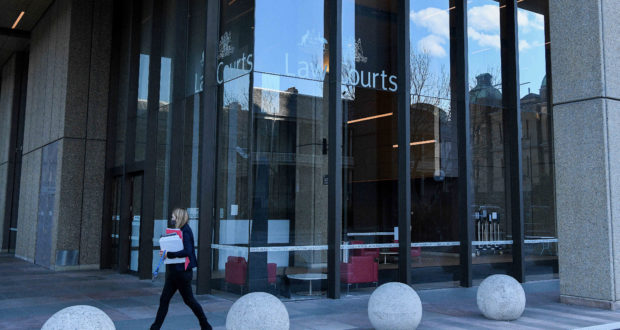A fresh legal challenge to Covid-19 vaccination mandates for health workers in NSW is “very different” to the two lawsuits knocked back last week, a court has been told.
John Edward Larter, a paramedic and deputy mayor of the Snowy Valleys Council, is one of a number of citizens battling Health Minister Brad Hazzard in the courts over public health orders aimed at containing the pandemic.
He has asked the Supreme Court to overturn a rule requiring healthcare workers to be fully vaccinated by November 30.
Justice Robert Beech-Jones last week put the kybosh on two other challenges brought by citizens Natasha Henry and Al-Munir Kassam, ruling the vaccination mandates ultimately curtailed freedom of movement, not the right to bodily integrity.
In a short directions hearing before the Supreme Court on Thursday morning, barrister Shane Prince SC described Kassam’s case as “more ambitious” than Larter’s.
“Our case is a bit more conservative,” he told Justice Christine Adamson.
Prince said the prior two cases challenged the utility of vaccines, while Larter’s was about whether the public health orders were a proportionate response to the risk.
He told the court the small cohort who would be “effectively coerced into vaccination” was only a sub-percentage of an already limited cohort of health workers.
“Let’s say for example 90 per cent of people who aren’t mandated to get vaccines, get vaccines,” he told the court.
“You’re really talking about directing a health order to maybe 10 per cent of a cohort of about 140,000 people.”
“So if the objective is to increase community vaccinations to a point where, consistent with the Doherty modelling, it will have an impact on the public health outcomes, then we say this public health order is disproportionate to it.”
In a separate legal challenge, Ibrahim Can is arguing public health orders requiring people to show proof of vaccination infringe on the right to silence and privilege against self-incrimination.
But Prince said on Thursday the arguments about privilege against self-incrimination would be dropped following the ruling from Justice Beech-Jones on the other two cases.
The judge found that the privilege protected people against having to produce incriminating information, not being unable to produce exonerating information.
The two cases will be heard consecutively before Justice Adamson at a trial beginning November 4.
Do you have an idea for a story?Email [email protected]
 Aged Care Insite Australia's number one aged care news source
Aged Care Insite Australia's number one aged care news source

